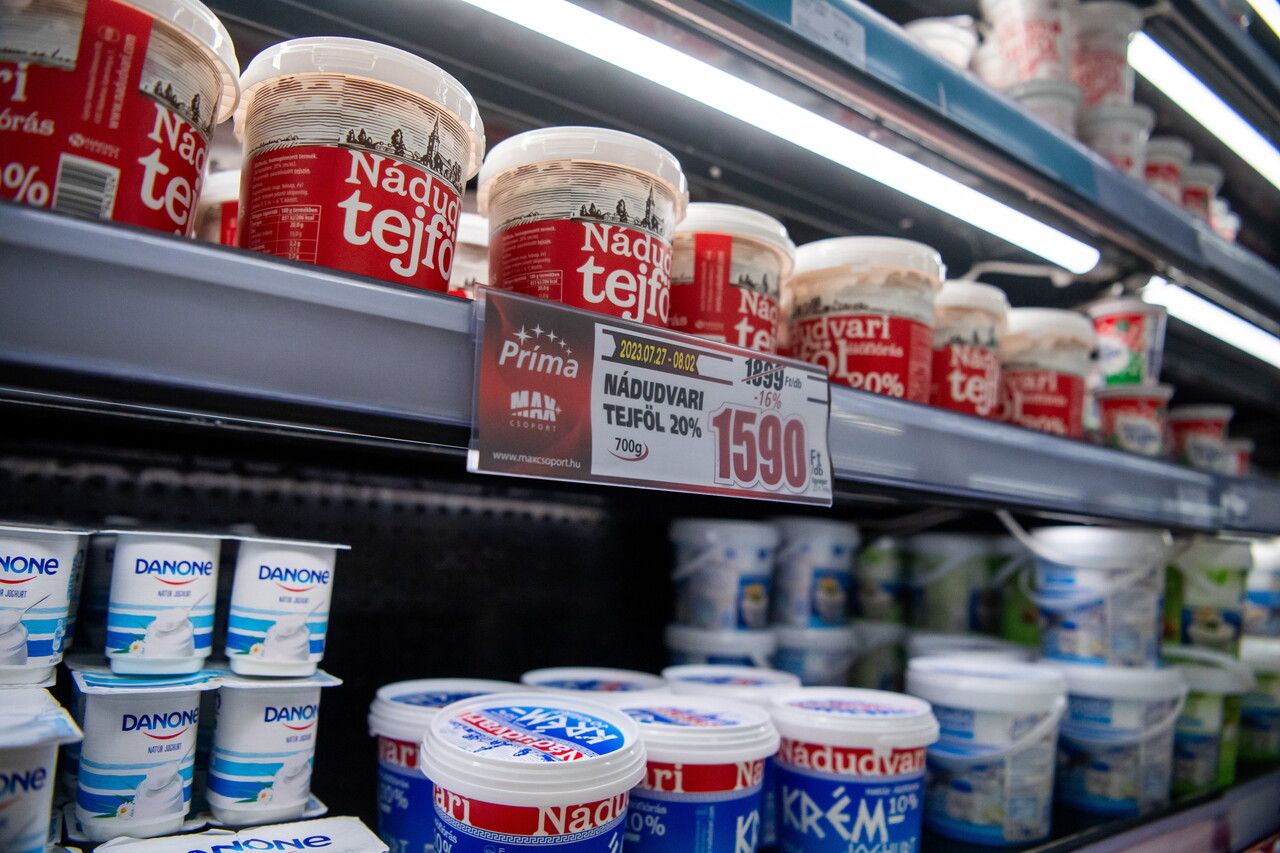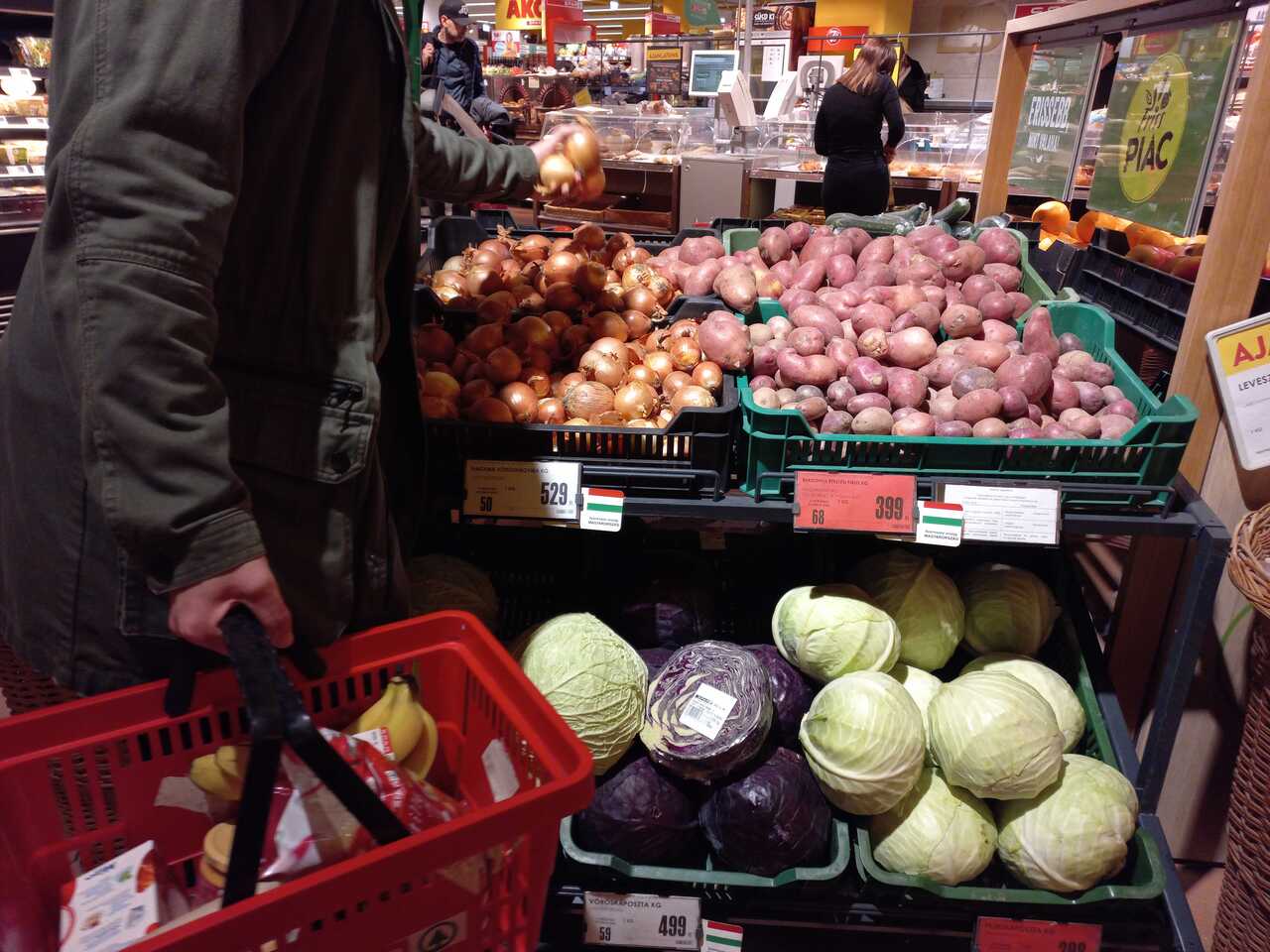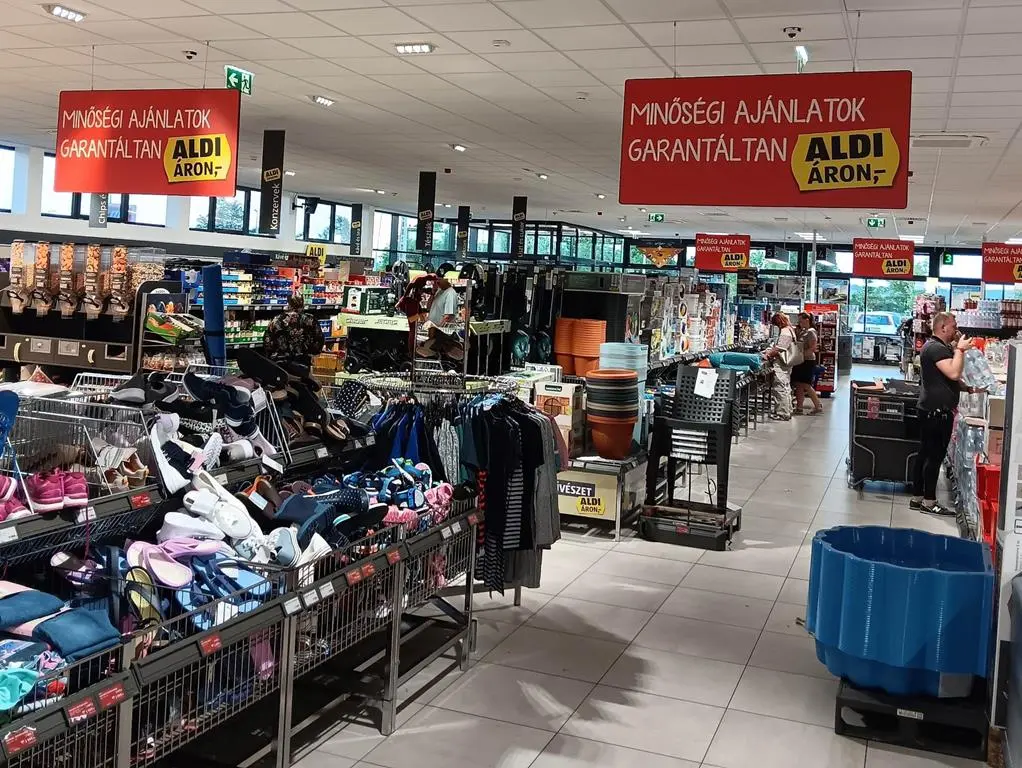Change language:
Expert: Quality of food in Hungarian shops often worse than in Western Europe

According to an expert, the quality of food sold in Hungarian shops is often worse than those sold in Western Europe. The best way for businesses to cut prices is to produce lower-quality products or reduce package sizes: which is what’s happening in Hungary.
Average price level of food and beverages in Hungary lower than EU average

Zombor Berezvai, an assistant professor at Corvinus University of Budapest, told Agrárszektor that “we are not doing well in international comparison,” adding that the Hungarian food industry is generally less efficient and productive than its regional competitors. However, he also added that in general, it is misleading to say that food is more expensive here than elsewhere.
This is supported by Eurostat data, which clearly shows that the average price level of food and non-alcoholic beverages in Hungary is still significantly below the EU average, namely 90% of it. The article recalls that the Hungarian National Bank (Magyar Nemzeti Bank, MNB) has repeatedly pointed out that the efficiency of the Hungarian food industry lags behind the productivity of major European countries, which undoubtedly makes products produced in Hungary more expensive.
Everything is more expensive in Hungary than elsewhere – or is it?

Moreover, the Hungarian food industry faces a higher interest rate environment if it wants to invest or develop, Agrárszektor explains. This is exacerbated by high VAT levels and the volatility of the forint against the euro and the dollar. In many cases, companies react to the latter by expecting a higher exchange rate because they do not want to lose profit due to unpredictable exchange rate movements.
Indeed, this does not only affect imported products but also domestic products, which adjust their prices to competing imports, due to competitor-oriented pricing. These would justify products costing more at home than abroad. However, even if firms produce more expensive products, and even if VAT is higher in Hungary and the exchange rate is less favourable, if they reflect this in their prices, it will significantly reduce demand.
Lower-quality products, smaller packaging

“This is where demand-driven pricing, consumers’ purchasing power and willingness to pay enter the picture,” the expert said. According to him, this may be why prices for many products do not end up being higher in the country. However, the only way for companies to reduce prices is to produce lower-quality products or reduce package sizes.
“I think the former is the reason why the quality of many products in Central and Eastern Europe – and therefore in Hungary – is lower than in Western Europe, and why the size of packages is often smaller and smaller. That’s just how things add up,” concluded Zombor Berezvai.
Read also:








Heaps of Truth in this article.
We have the luxury to travel often from our house in Budapest, Hungary.
Recent week in Lisbon, Portugal for example.
Dining, travel cards, Aldi, Lidl, cigarettes and alcohol muchly aligned to similar costs to Hungary.
Alcohol & cigarettes – cheaper than Hungary.
Quality of Food – variety wider range of choice “superior” to Budapest, Hungary, even in Aldi & Lidl.
Used this platform on numerous occasions on subjects of similarity to what this article refers, that it DOES appear, we in Hungary, receive over-all a lower quality of food types and of FACT choice, than say, Italy, Switzerland, Austria, Germany, France.
Is it VAT at 27% highest in the EU ?
We know post February 2020 – arrival of the Corona Virus – the un-acceptable price rises blamed on Inflation, which is CRAP, that we have to live with in Budapest, Hungary but we are the SECOND “rank” in the Food choice & quality supplied and available – overall in Budapest, Hungary.
We don’t have to watch our huf, but we SHOP wisely carefully thoughtfully, focused as I do on our Supermarket “exploits”.
We shop at fresh markets – Fovam & Lehal for example – but its the “lower” quality and choice experienced in Budapest, Hungary that is VERY very Noticeable, in comparison to “other” country’s we visit that I referred in a previous paragraph.
Germany next week for 14 days which we love to visit Kaufland Supermarkets in the City we holiday.
WHY do we always, as we travel by train, return to Budapest, with “lots” of somewhat elementary food types, that we can’t source in Budapest, Hungary ?
There is NARROWNESS added sadly a QUALITY “problem” in Hungary, on the subject of this article – that see’s Hungary treated somewhat as “second ratters” by the LARGE Supermarket Chains.
Lets look to the FUTURE all will be resolved corrected giving us more “Rubels” in our pockets with the DEAL agreed and signed of by the current Prime Minister of Hungary – Victor Orban, with “Mother Russia” – the LARGE Russian OPERATED Supermarket “Bulk Buying” and “other chain, who will be in Cities, Towns and Villages or Hamlets SOONER than Later.
That will be a WINNER haha – for ALL Hungarians.
Could have a lot to do with population number but of greater FACTUAL knowledge, that disposable income, rating of Hungary being 26 out of 27 European Country’s that HIGHLIGHTS our POORNESS overall as a country, having no real spending power, that we are treated this way in “imported” and other Food type’s.
I didn’t read all the article just yet, but the beginning,and there’s a sentence that states that prices are still significantly lower than in other countries.. I am a Hungarian living in the UK but I have friends all over Europe. One thing we all agree on is that sometimes prices are absolutely higher in Hungary than elsewhere. Let’s say I go Tesco here and buy some basic stuff then do the same shopping in Hungary, there’s a high chance that I’ll pay more in Hungary or at least the same amount.. And then we didn’t even mention the 3-5 times higher salaries we take home.
It is quite noticeable that prices are not lower than our neighbours. Quality is abismal in comparison. Quite frequently there are *ROTTEN* vegetables and *SPOLIED* meat being sold 50% AKCIO which (for example) in Portugal would make the police (ASAE) close the supermarket down and make the company pay hefty fines.
But here it seems people accept this crap. People seem numb. Maybe we need more public visibility for this issue?
Nem is vagy magyar,csak beszéled a nyelvet, feleslegesen ne szídd kelet Európa egyik legjobb országát, bár tudom hogy ezért fizetnek téged. Nálunk nem szemétdombokból,graffitiből csövesekból és migránsokból áll a történelmi fővárosunk mint Róma,Párizs és London. Ha nem tetszik akkor lehet szépen ott élni, biztos jó lehet azis ahol a GMOkat nem kell külön jelezni a termékeken, a baloldali sátánisták szabadon randalírozhatnak a felbecsülhetetlen értékű városok utcáin és migránsok kéregetnek és lopnak a helyi emberektől, gratulálok.
@Pete, while I agree that many items in Hungarian supermarkets are more expensive than the UK, I fail to see how take home salaries are in the 3-5x range any longer. When comparing incomes the general multiplier appears to be x2 and sometimes it doesn’t even reach those levels any longer. Hungarian salaries are low by European comparison but so are average wages in the UK. Clearly there are variances between different industries and I know there are some highly paid sectors in the UK where salaries are many multiples of local average incomes, e.g. banking and finance, but these are exceptional and only affect a small percentage of the working population. At the moment even those earning well above average incomes are reeling from the housing crisis in the UK that’s leading to a wave of emigration among the younger generations. 4% of London’s population is functionally homeless, sofa surfing with family or accommodated in motel rooms courtesy of the local council.